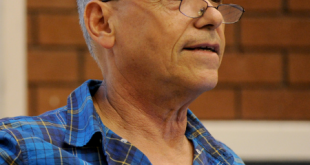Time irreversibility and non-ergodicity are — as yours truly repeatedly has argued — extremely important issues for understanding what are some of the deep fundamental flaws of mainstream economics. Ole Peters presentation at Gresham College gives further evidence why expectation values are irrelevant for understanding real-world economic systems. [embedded content]
Read More »En plats nära mitt hjärta (personal)
En plats nära mitt hjärta (personal) Östra kyrkogården i Lund är en plats som alltid betytt mycket för mig. Hit har jag kommit många gånger för att söka tröst och vila för min själ. Tre av de människor jag älskat mest i mitt liv ligger begravda här. I dag tände jag ljus för dem alla — min hustru Kristina, min bror Peter, och min vän Bengt. RIP. [embedded content]
Read More »La laïcité française
Le régime fondé en 1905 correspondait à une époque où la question religieuse était liée au catholicisme. Cent quinze ans plus tard, l’enracinement de l’islam la pose en termes différents. N’est-il pas légitime d’en réactualiser le contenu ? Jean-Louis Bianco, président de l’Observatoire de la laïcité: Ce serait une énorme erreur, non pas par rapport à l’islam, mais par rapport à la laïcité. La laïcité n’est pas tout à fait une valeur. Les valeurs, c’est la liberté,...
Read More »Olivier Blanchard fordert generöser Subventionen statt Kredite
Olivier Blanchard fordert generöser Subventionen statt Kredite ZEIT ONLINE: Herr Blanchard, Deutschland hat gerade einen umfassenden Lockdown beschlossen, wie viele andere Staaten weltweit. Und der erste Lockdown ist noch nicht lange her. Glauben Sie, dass Unternehmen und Regierungen diesmal besser vorbereitet sind? Olivier Blanchard: Dieser zweite Lockdown hat ganz neue Dimensionen … Wir müssen die direkt und indirekt betroffenen Unternehmen und...
Read More »Endeavour
[embedded content]
Read More »Interpreting economic theory
The issue of interpreting economic theory is, in my opinion, the most serious problem now facing economic theorists. The feeling among many of us can be summarized as follows. Economic theory should deal with the real world. It is not a branch of abstract mathematics even though it utilizes mathematical tools. Since it is about the real world, people expect the theory to prove useful in achieving practical goals. But economic theory has not delivered the goods. Predictions...
Read More »Georgy Sviridov
. [embedded content]
Read More »Trivium
[embedded content]
Read More »Is economics value-free?
I’ve subsequently stayed away from the minimum wage literature for a number of reasons. First, it cost me a lot of friends. People that I had known for many years, for instance, some of the ones I met at my first job at the University of Chicago, became very angry or disappointed. They thought that in publishing our work we were being traitors to the cause of economics as a whole. David Card Back in 1992, New Jersey raised the minimum wage by 18 per cent while its neighbour...
Read More »Tunström’s epic masterpiece (personal)
Tunström’s epic masterpiece (personal) The Christmas Oratory — based on Göran Tunström’s s epic masterpiece — is a stunningly beautiful and totally heartbreaking movie. Stefan Nilsson wrote the God-given music. [embedded content]
Read More » Lars P. Syll
Lars P. Syll




